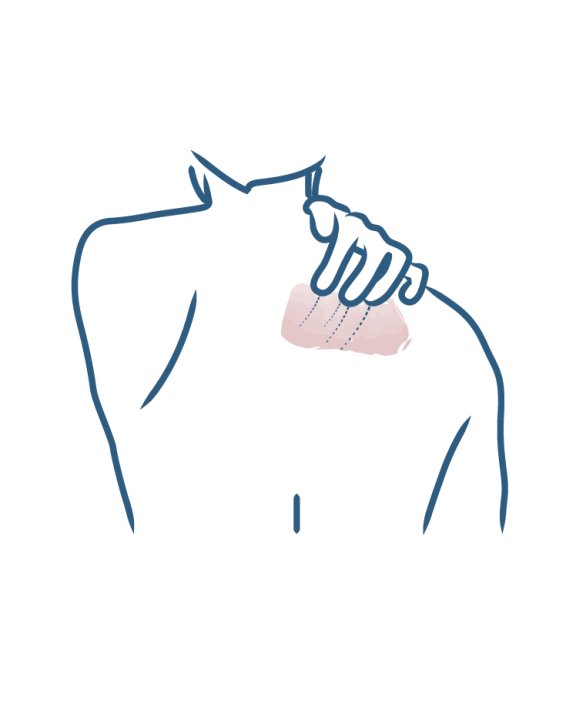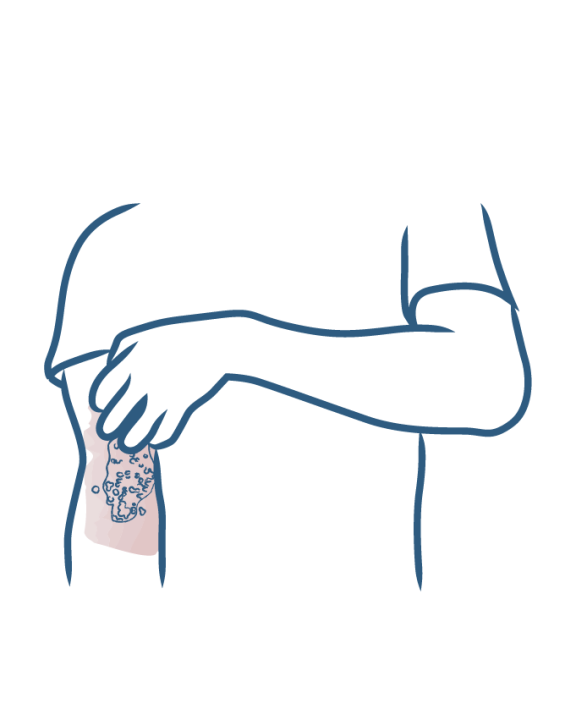What causes eczema?
- SUMMARY
- Eczema
Contact eczema due to cleaning products
- Living with eczema day to day
- What soap should be used for eczema?
- Eczema cream, ointment: what should you use?
- Eczema: can it be cured?
- Eczema: how to treat itching
- Swimming pool, swimming when you have eczema?
- Which detergent should eczema patients use?
- Eczema: how can flare-ups be avoided?
- What are the habits to avoid when you have eczema?
- Eczema: What daily reflexes should you adopt?
- Eczema: what foods should you eat?
- What causes eczema?
- Clothing contact eczema
- Contact eczema due to cosmetics
- Contact eczema due to nickel and chromium
- Stress-induced eczema
- Hereditary eczema
- Perspiration-induced eczema
- Contact eczema due to cleaning products
- Allergy-induced eczema
- Contact eczema due to medication and topical treatments
- Body eczema: hands, feet, arms, back, face, etc.
- Arm eczema (elbows, armpits, forearms)
- Eczema of the eyelids, eyes or palpebral eczema
- Foot eczema
- Eczema around the mouth
- Leg eczema or varicose eczema
- Eczema in the ears
- Hand and finger eczema (chronic hand eczema)
- Facial eczema
- Eczema on the stomach and belly button
- Eczema on the neck and nape of the neck
- Scalp eczema
- Eczema on the back
- What is infantile eczema?
- What soap should be used for babies with eczema?
- Eczema in babies and children: the areas most often affected
- Eczema in babies: what habits should you adopt?
- Cortisone cream to relieve eczema?
- How should you treat baby’s and infant’s eczema?
- When should you consult a physician about your baby's eczema?

Contact eczema due to cleaning products
Cleaning products are part of our daily life, at home and/or at work. Contact eczema due to cleaning products mainly affects the hands and results in the appearance of plaques, redness and itching.
Which cleaning products are involved?
Handling cleaning products such as bleach, detergents, waxes, dishwashing liquid, etc. can be a source of contact eczema and dermatitis.
Do not confuse allergy and irritation
Before talking about bleach allergy, detergent allergy or more generally chemical allergy, it is important to know that cleaning products are naturally irritating. They are sometimes the cause of a flare-up of contact eczema, but it is sometimes difficult to tell the difference between irritant dermatitis and a genuine contact allergy. Irritant dermatitis is an inflammation of the skin that appears in an individual, allergic or not, following contact with an irritant substance, and without involving the immune system.
What should you do in case of contact eczema due to cleaning products?
As a first step, it is important to relieve the flare-up of contact eczema when it occurs. The first thing to do is to apply a cortisone cream to the plaques, ideally in the evening while wearing a glove to allow the medication to work overnight. The application of a soothing repair cream to the lesions or on top of the topical corticosteroid increases the efficacy of the topical corticosteroid.
The next step is to identify cleaning products that are sources of allergic eczema or irritant dermatitis to avoid them as much as possible afterwards.
Prevention
To avoid the appearance of plaques on your hands, wear gloves when cleaning or washing dishes. Once the entire house is clean, wash your hands with an ultra-rich soap or cleansing oil, pat dry with a soft towel, then apply an emollient cream. The wearing of gloves and the application of adapted creams are perfectly complementary.
To limit the risk of allergy to cleaning products and preserve the environment, consider replacing chemical products with more natural but equally effective equivalents: white vinegar, Marseille soap, black soap or baking soda.
More information
- Discover Contact eczema due to medication and topical treatments
What causes eczema?
Contact eczema due to medication and topical treatments
- Discover Allergy-induced eczema
What causes eczema?
Allergy-induced eczema
- Discover Contact eczema due to nickel and chromium
What causes eczema?
Contact eczema due to nickel and chromium
- Discover Stress-induced eczema
What causes eczema?
Stress-induced eczema
- Discover Contact eczema due to cosmetics
What causes eczema?
Contact eczema due to cosmetics
- Discover Perspiration-induced eczema
What causes eczema?
Perspiration-induced eczema
- Discover Clothing contact eczema
What causes eczema?
Clothing contact eczema
Our care routines
Skin prone to atopic eczema, contact eczema, chronic eczema and/or, eyelid eczema
Dermatological expertise
To better understand your skin and hair, discover our exclusive content and innovative care products designed to improve your quality of life..





